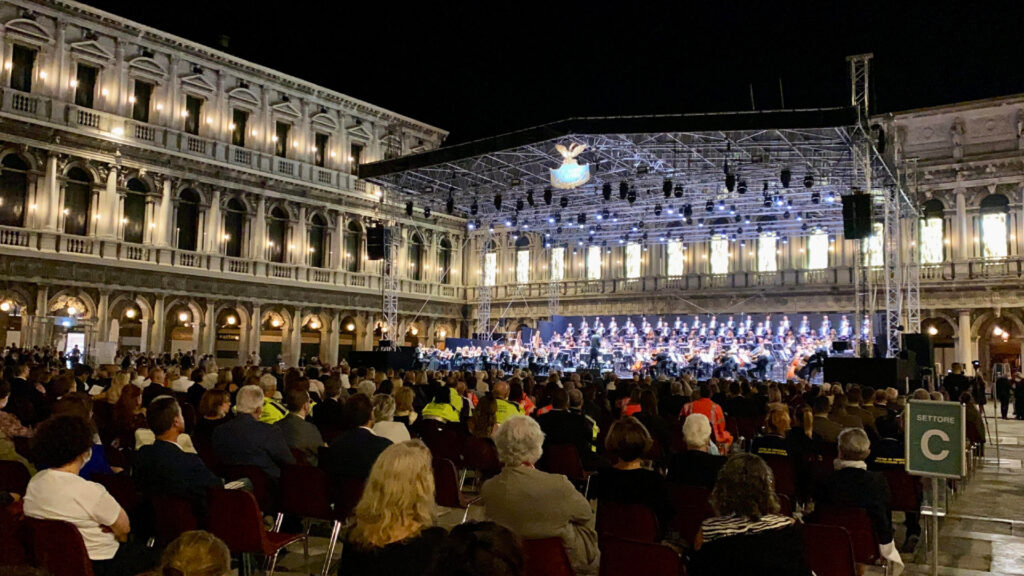
The Carmina Burana directed by Fabio Luisi in the town limelight par excellence. The great classic of the Fenice returns to Piazza San Marco
A great chorus show in Piazza San Marco to celebrate a new summer. Carl Orff’s Carmina Burana, directed by Fabio Luisi, will grace the most iconic stage in town for what is sure to be a sold-out event. On Saturday, July 9, the Fenice Theatre Orchestra and Chorus, director Alfonso Caiani, soprano Regula Mühlmann, tenor Michael Schade, and baritone Markus Werba will perform in this theatre piece inspired by Medieval texts.
The origin of the Carmina Burana (a term coined by scholar Johann Andreas Schmeller in 1847) is in a thirteenth-century manuscript coming from the Benediktbeuern Monastery, and is now part of the collection of the German National Library in Munich. It seems that all compositions be song, though a musical score had not been preserved for the most part. Mostly Latin, with some lyrics in Old German, the poems are a compendium of the literary production of the time and touch diverse topics, from goliardery to love to satire. Carl Orff (1895-1982) composed a faux-medieval score to go with them that alternates oases of peace with moments of deafening percussive sound.
Orff identified with this creation of his so strongly that he reneged all his previous work. The Carmina were first performed in Frankfurt in 1937. Also worthy of note is the importance given to female voices, which span all the way to the highest registries. A touch of Medieval Europe in scorching July weather.
If Carl Orff never came across a used books stand, and never picked up the transcription of ancient codices in Latin and Old German, dating back to 1225 and coming from the Benediktbeuern Abbey, we might had never heard the famous Carmina Burana, a collection of religious and profane songs on several themes, from heretic love to philosophy to food – all in relation to the incessant passage of time. Orff created deliberately simple music, for choir and orchestra, articulated around vigorous rhythm and rich sound. Who was Carl Orff? Born in Munich in 1895 from an upper-class family, he received his musical education at the Munich Music Academy to later find work at the operas in Darmstadt and Mannheim. He later moved back to Munich, where he taught at Günther-Schule and at the Hochschule für Musik.
When he presented the Carmina Burana in Frankfurt in 1937, he received no official acknowledgement from the Nazi regime, which didn’t care much for the work, unlike the general public. The question is controversial, though, as the Orff family was not at all distant to the regime and it is significant that the Italian premiere of the Carmina took place at the Scala Theatre, in Milan, in 1942, as the war raged.